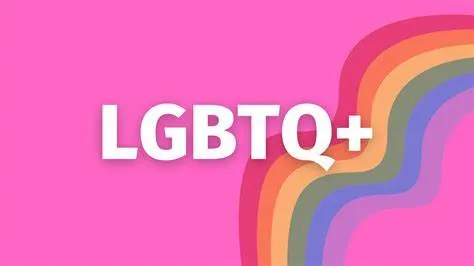LGBTQ+ support groups in universities serve as essential spaces for students to connect, find support, and navigate their identities in an often-challenging academic environment. These groups provide a foundation of belonging for LGBTQ+ individuals, helping them address unique struggles and advocating for greater campus inclusivity.

Why LGBTQ+ Support is Essential
University life is a critical period for personal development, and for LGBTQ+ students, this can be accompanied by unique challenges. Many face issues related to coming out, fear of discrimination, or a lack of understanding from peers and faculty. These factors can lead to feelings of isolation, anxiety, or even depression.
Support groups specifically for LGBTQ+ students aim to address these challenges by offering:
- Safe and Affirming Environments: LGBTQ+ groups create welcoming spaces where students can freely express their identities without fear of prejudice or misunderstanding. This is particularly important in environments where acceptance may not always be guaranteed.
- Emotional and Mental Health Support: LGBTQ+ students are at higher risk for mental health issues due to the stress of discrimination or marginalization. Support groups often collaborate with campus counseling centers to offer tailored resources, peer-led mental health sessions, or workshops to help students cope with these challenges.
- Building Community: These groups help LGBTQ+ students connect with others who share similar experiences, offering a sense of community and camaraderie. Finding peers who understand their struggles can significantly reduce feelings of isolation.
- Advocacy for Rights and Inclusion: LGBTQ+ groups also serve as advocates for more inclusive policies on campus. Whether it’s pushing for gender-neutral restrooms, addressing LGBTQ+ discrimination in campus policies, or raising awareness on issues like inclusive housing, these groups work toward systemic changes to make universities safer and more welcoming.
- Educational Programs and Events: Many LGBTQ+ groups host educational events and campaigns, such as guest speaker panels, workshops on LGBTQ+ history, and initiatives like Pride celebrations. These activities not only provide visibility but also educate the broader student body about LGBTQ+ issues.
Structure and Activities of LGBTQ+ Support Groups
LGBTQ+ groups are typically student-run, though they often receive guidance and support from faculty or university diversity offices. Their structure and activities can vary depending on the size and needs of the student population, but most groups share similar elements:
- Leadership and Organization: A dedicated leadership team of students often organizes events, coordinates meetings, and serves as representatives for the group’s needs. These leaders may also work with other campus organizations to increase the reach and impact of the group’s initiatives.
- Regular Gatherings and Discussions: LGBTQ+ support groups hold regular meetings, which might involve social activities, discussions on important issues, or inviting guest speakers. These gatherings allow members to engage in conversations about topics like LGBTQ+ representation, coming out experiences, or the intersection of LGBTQ+ identity with race, religion, and other factors.
- Social Events and Networking: In addition to formal meetings, LGBTQ+ groups often host social events like movie nights, game nights, or off-campus outings. These events provide opportunities for students to relax and build friendships in a supportive environment.
- Collaborative Events: LGBTQ+ groups frequently collaborate with other student organizations, such as women’s centers, multicultural groups, or mental health services. These partnerships strengthen the group’s ability to provide comprehensive support for students.
Broader Impact on Campus Life
The benefits of LGBTQ+ support groups extend beyond the immediate LGBTQ+ community. Their presence enhances the overall inclusivity of campus life, contributing to a more respectful and supportive environment for all students. Here’s how these groups impact the wider university:
- Promoting Awareness and Acceptance: Through educational programs and visibility events, LGBTQ+ groups help create a more informed and accepting student body. This promotes a campus culture that values diversity and challenges homophobia, transphobia, and other forms of discrimination.
- Fostering a More Supportive Mental Health Climate: A university that actively supports LGBTQ+ students helps to reduce the mental health burden on this community, which in turn benefits the broader student body by promoting a more empathetic and supportive atmosphere.
- Inspiring Policy Changes: LGBTQ+ groups often work to bring about institutional changes that benefit all students, such as advocating for more inclusive language in university policies, pushing for diverse student housing options, or introducing sensitivity training for staff and faculty.
Overcoming Challenges
While LGBTQ+ groups bring tremendous value to campus life, they also face challenges. Some common difficulties include:
- Limited Resources: Many LGBTQ+ support groups struggle with funding, which can limit their ability to host events, provide materials, or expand their programming. University support and external partnerships are critical in helping these groups thrive.
- Resistance and Bias: Despite progress in LGBTQ+ rights, some students and faculty members may still hold biases or resist efforts to make the campus more inclusive. LGBTQ+ groups often have to navigate this resistance while advocating for policy changes and creating safe spaces.
- Balancing Advocacy and Support: LGBTQ+ groups often juggle their role as support systems with their responsibility as advocates for change. Striking the right balance between these roles can be challenging, particularly when resources are limited or when external opposition is strong.
Conclusion
LGBTQ+ support groups in universities provide essential services that contribute to the wellbeing and success of LGBTQ+ students. By offering safe spaces, mental health resources, peer connections, and educational initiatives, these groups foster a more inclusive, supportive campus environment. As universities continue to prioritize diversity and inclusion, LGBTQ+ groups will remain central to building communities where every student feels valued and understood.